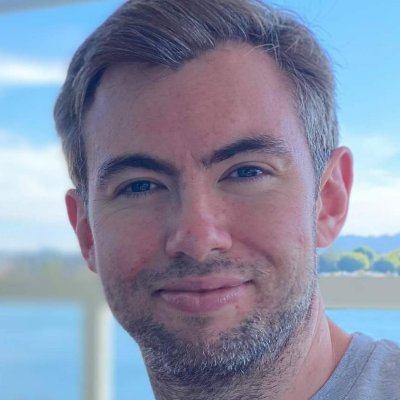In the latest instalment of our Staff Profile series, we spoke to Dr Toby Ellmers, who recently joined the Neuro-otology Unit within the Department of Brain Sciences.
 Introduce yourself – who are you and what do you do?
Introduce yourself – who are you and what do you do?
My name is Dr Toby Ellmers and I am a Sir Henry Wellcome Fellow in the Neuro-otology Unit, within the Department of Brain Sciences.
When did you join the Department, and where were you working or studying before this?
My Fellowship began on 1 December 2021. Prior to joining the Department, I completed a 14-month ESRC Fellowship at the University of Exeter.
Can you explain the focus of your research, and what you’ll be investigating as part of your Fellowship?
I am a psychologist, with a specific interest in how psychological factors such as anxiety and attention influence – and potentially disrupt – balance control. For instance, I have recently demonstrated that fear of falling can disrupt the visuomotor control of walking, leading to increased stepping errors. During this Fellowship, I will be working with Professor Adolfo Bronstein to explore the neuro-cognitive factors that contribute to dizziness in older adults.
What was your route to securing your Fellowship?
After completing my PhD, I undertook a short postdoc at Brunel University London whilst applying for different Fellowships. I was awarded a 14-month ESRC Fellowship to join the University of Exeter, which then led to my current 4-year Sir Henry Wellcome Fellowship.
Do you have any top tips for prospective Fellowship applicants?
The most helpful advice I can give is to contact individuals who have been awarded the Fellowship that you are applying for (a list of current Fellows can typically be found on the website for the relevant Fellowship.) I cannot emphasise the importance of this enough: I received feedback and advice from a number of current Sir Henry Wellcome Fellows that was invaluable for my application. As most early career Fellowships require that applicants have a ‘mentor’, I also recommend forming relationships with potential mentors as early as possible.
Where do you see yourself in five years’ time?
Hopefully leading my own research team and continuing to bridge the gap between psychological theory and clinical practice.
What are your biggest passions and hobbies outside of work?
My biggest hobby outside of work is scriptwriting: I currently have a number of projects in development with film production companies, including Film Wales. I am also a keen martial artist (specialising in grappling martial arts, such as Judo and Olympic freestyle wrestling).
And finally: What’s one thing you’d like to share that we haven’t covered in the questions above?
Don’t be afraid to fail. I was unsuccessful with my initial application for a Sir Henry Wellcome Fellowship (after reaching the interview stage). However, this failure allowed me to further reflect on, refine and strengthen my subsequent (and ultimately successful) application.